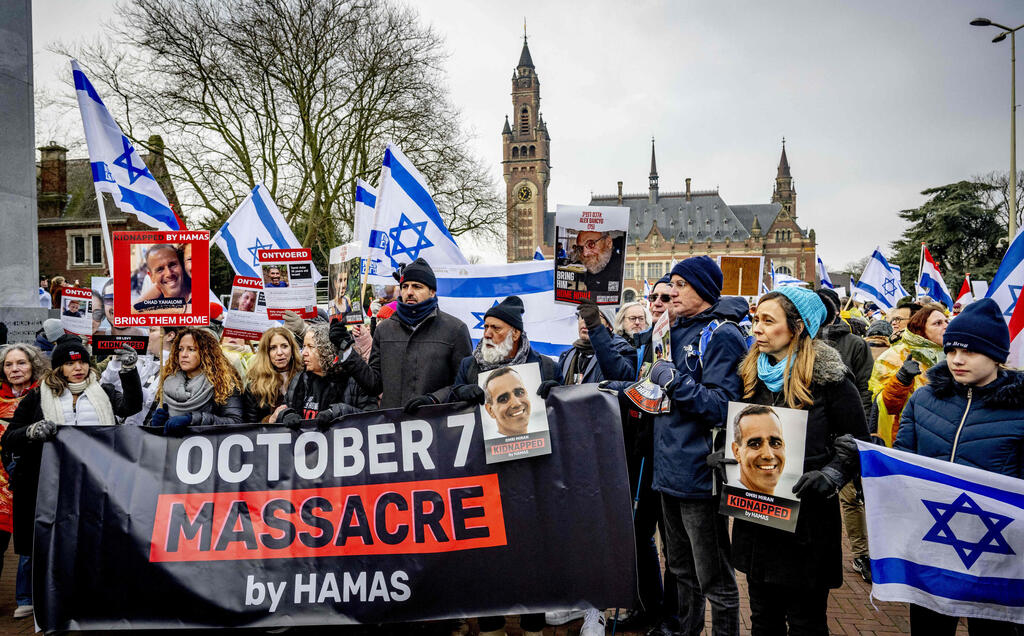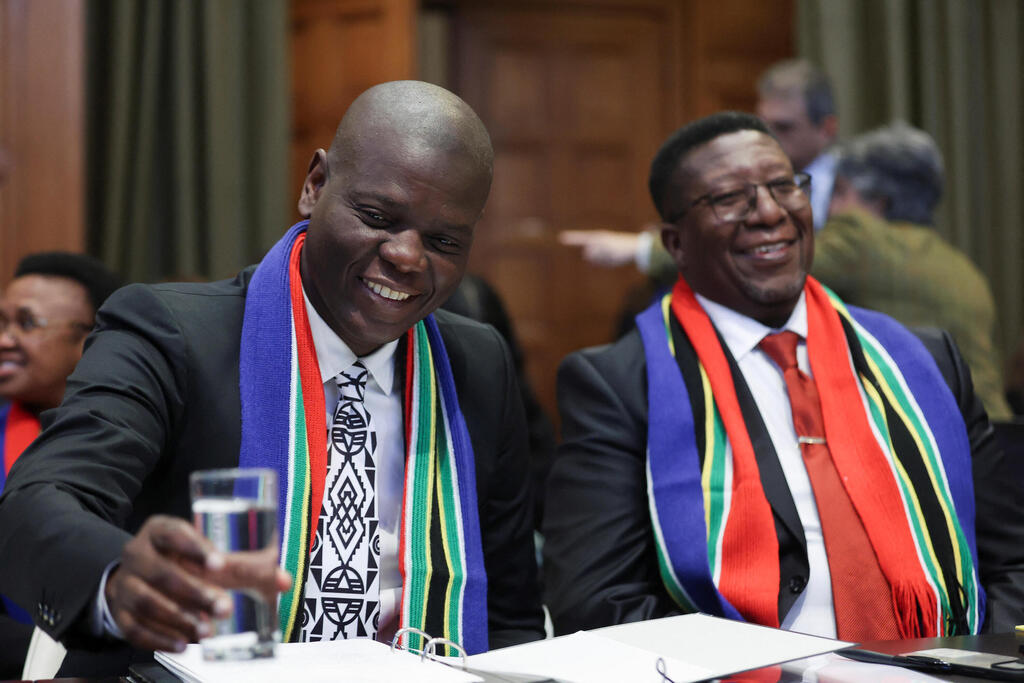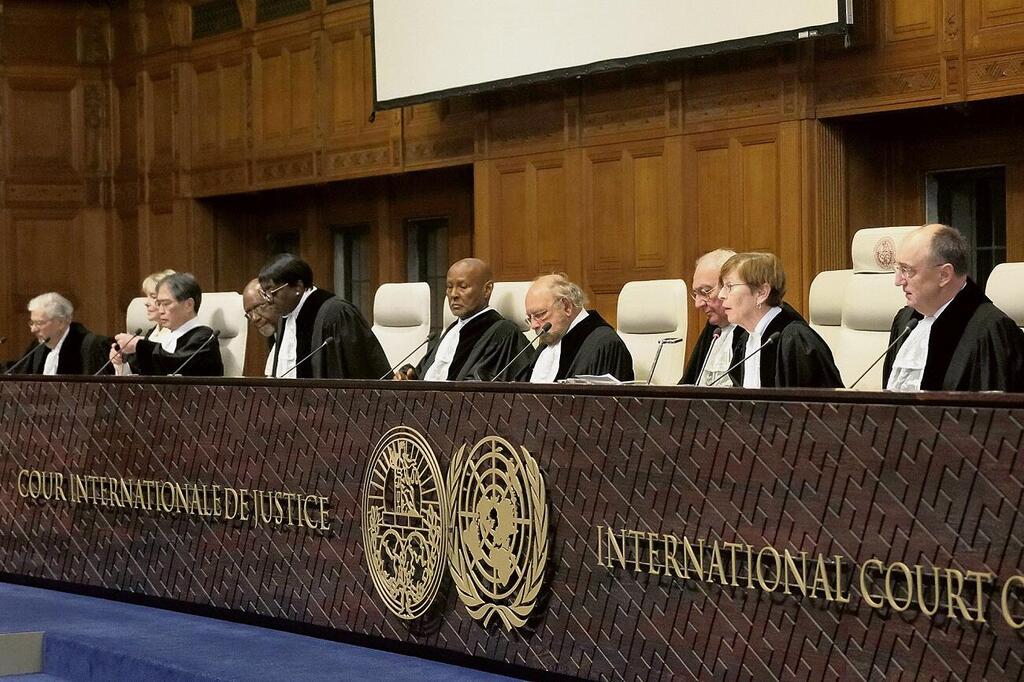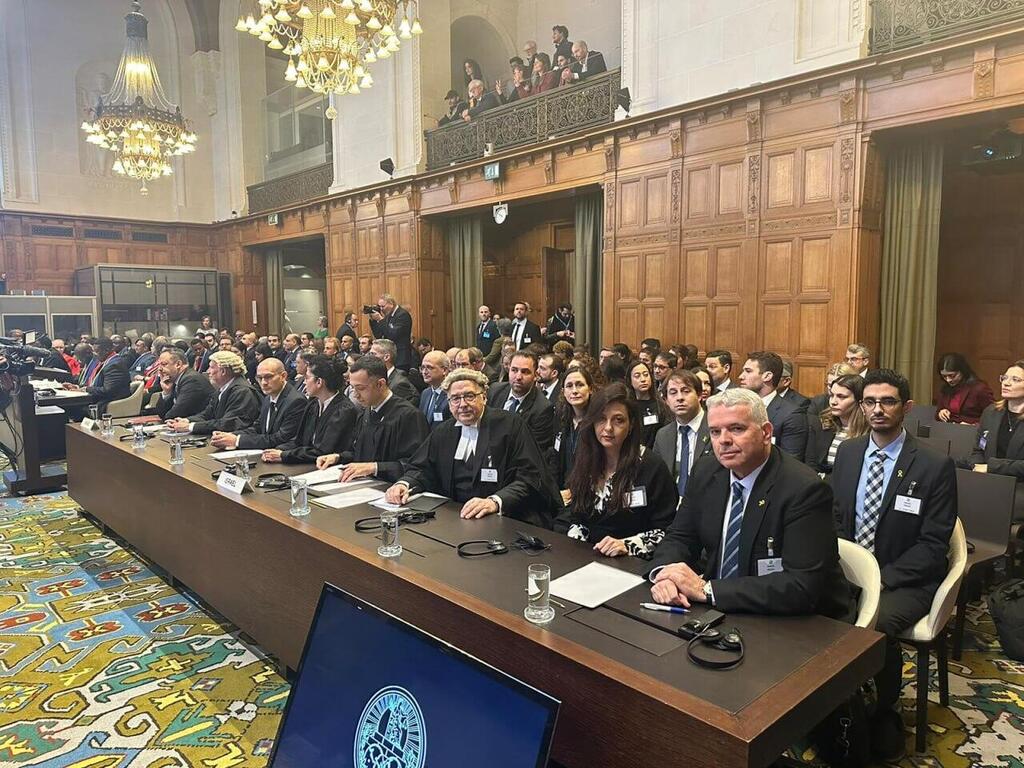The very convening of a hearing on Israel’s military campaign in Gaza at the International Court in The Hague serves a significant blow to its reputation.
More stories:
Merely the fact that the state is positioned in the defendant's seat, regardless of the trial's outcome, already reinforces the perception and narrative that the actions in the Gaza Strip are illegal and that the accusations against Israel are indeed credible - a case of "where there's smoke, there's fire."
Thus, the mere existence of a trial where Israel is accused of genocide in an international tribunal contributes to the belief that this accusation likely has a foundation.
For this reason, Israel is exerting considerable efforts to alter this perception and shift the narrative toward the other side. The national PR machinery has invested millions in an unprecedented international advocacy campaign.
Israel's message to the world is that the complaint is baseless and represents a frivolous legal maneuver by South Africa, serving Hamas's interests and aiding the terrorist organization in its war against Israel.
Meanwhile, one of the greatest sources of frustration for those managing Israel's advocacy efforts is the political echelon's prohibition against directly attacking South Africa.
Indeed, following the hearing, the Foreign Ministry labeled South Africa as "Hamas's legal arm," yet the ability to directly confront this hostile nation would have significantly bolstered Israel's stance. It would have unequivocally stated that South Africa serves Hamas and acts as a proxy for the axis of evil.
Israel could highlight South Africa's problematic ties with Russia, as well as portray its double standards as a failing and corrupt state plagued by insecurity: an average of 82 murders and 115 rape incidents occur daily, and unemployment stands at 31%.
Furthermore, the mafia controls entire regions of the country, 19% of the population lacks access to water, and 33% do not have basic sanitation. Yet, instead of addressing its internal issues, South Africa utilizes international legal platforms to support its allies in Hamas, diverting attention away from its governance shortcomings.
Israel also had to carefully consider whether it should exact a price from South Africa, perhaps by filing a counter-lawsuit or even severing diplomatic ties. The latter idea has been set aside for now, as cutting off diplomatic relations would abandon the large and Zionist Jewish community living in the country.
The continuation of the trial and Israel's approach greatly depend on the interim relief that the International Court is expected to decide upon in the coming days.
Israeli officials believe that the decision will not be entirely in their favor, given that the 15-judge panel includes many members from countries not particularly fond of Israel. Some of these judges have problematic backgrounds, and have framed the situation as a "struggle against occupation."
A senior Israeli official said that it's unlikely the court will find the South African lawsuit baseless, but it probably won't go as far as to declare that a genocide is indeed taking place.
One likely scenario is that the court will determine Israel must take more humanitarian steps for the Palestinian population – actions that are already being undertaken and coordinated with the United States.
In the long term, the lawsuit is detrimental to Israel, as being seen on the defendant's bench often leads to the perception of actual guilt, negatively impacting Israel's global image. This aspect is linked to the stagnation in Israeli-Palestinian relations and the lack of vision for the future. The more cohesive Israel's political vision for the future, the more comfortable its position will be in facing the International Court.
Despite the predicament it found itself in, Israel is putting up a significant fight on the advocacy front. The Foreign Ministry and the National Information Directorate sent a large delegation to The Hague, conducting impressive advocacy activities.
Additionally, delegations of families of hostages and victims were sent to The Hague, where they held a march and rally with pro-Israel activists, waving posters of hostages.
Ahead of the hearing, the National Information Directorate unveiled a website on Wednesday featuring testimonies and videos documenting the horrors of October 7.
On its first day, the website registered 100,000 visits even before any promotional efforts began. Analysis of the traffic revealed that an average of 4,000 users spent about 30 minutes on the site, with the majority of visitors coming from the U.S., Canada and the UK. Thus, a significant part of the effort was focused on the digital campaign, much of which was aimed at audiences connected to the International Court of Justice in The Hague.
Meanwhile, despite negative global public opinion, the National Information Directorate believes that the Hague lawsuit offers a platform for Israel to make its case. The interest it generates is seen as an opportunity for Israel to counter allegations and gain points in the court of public opinion.







